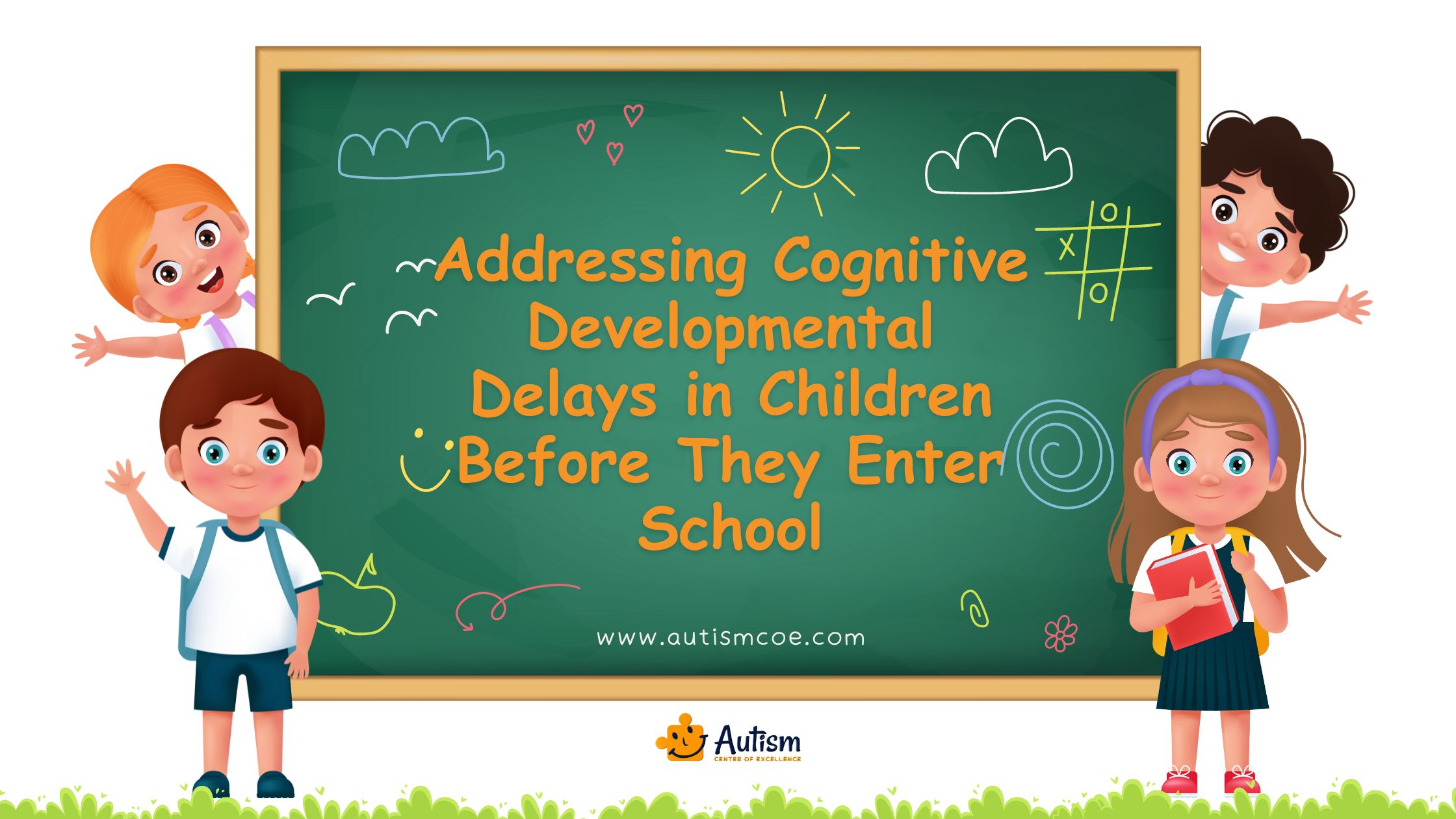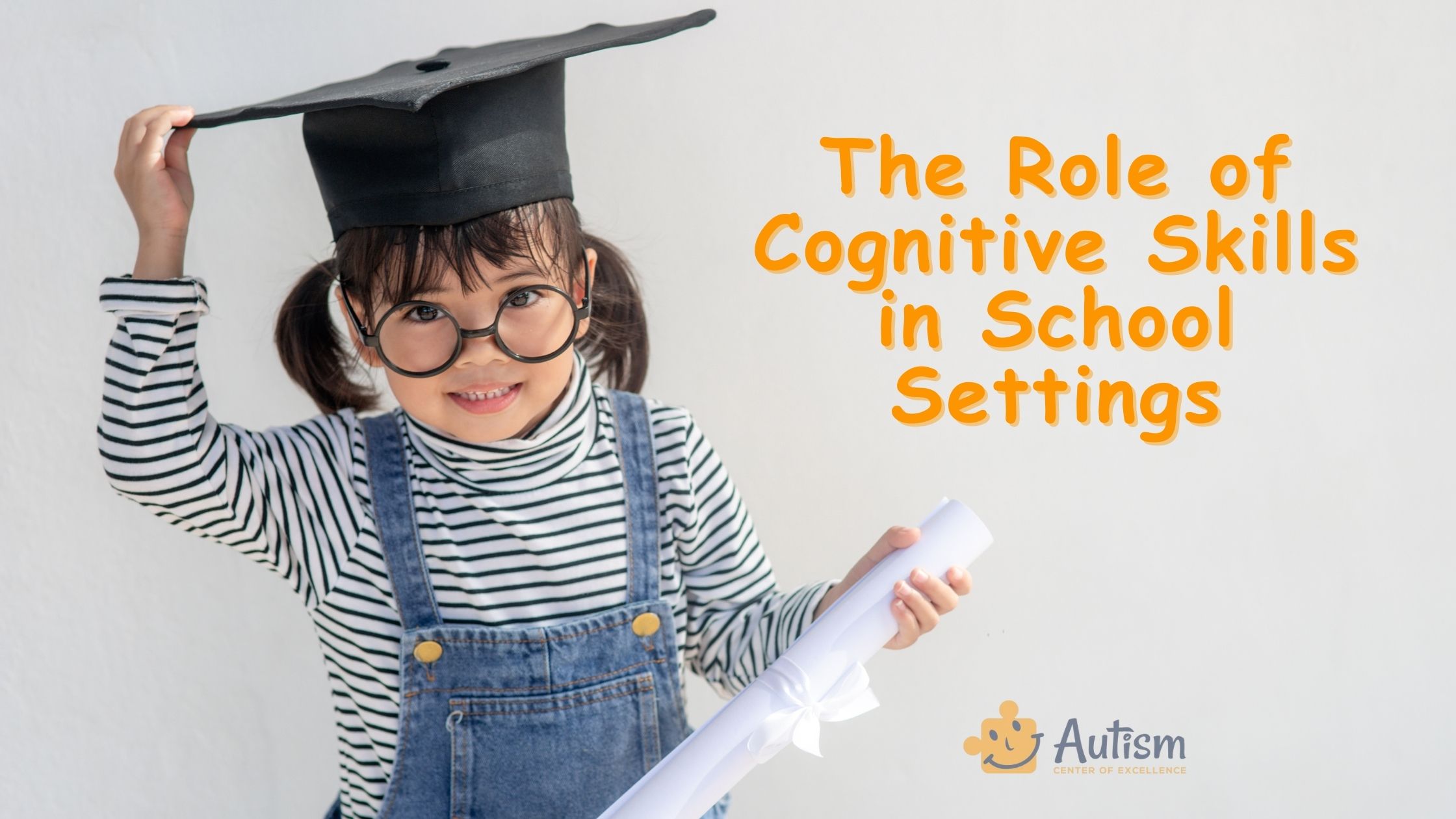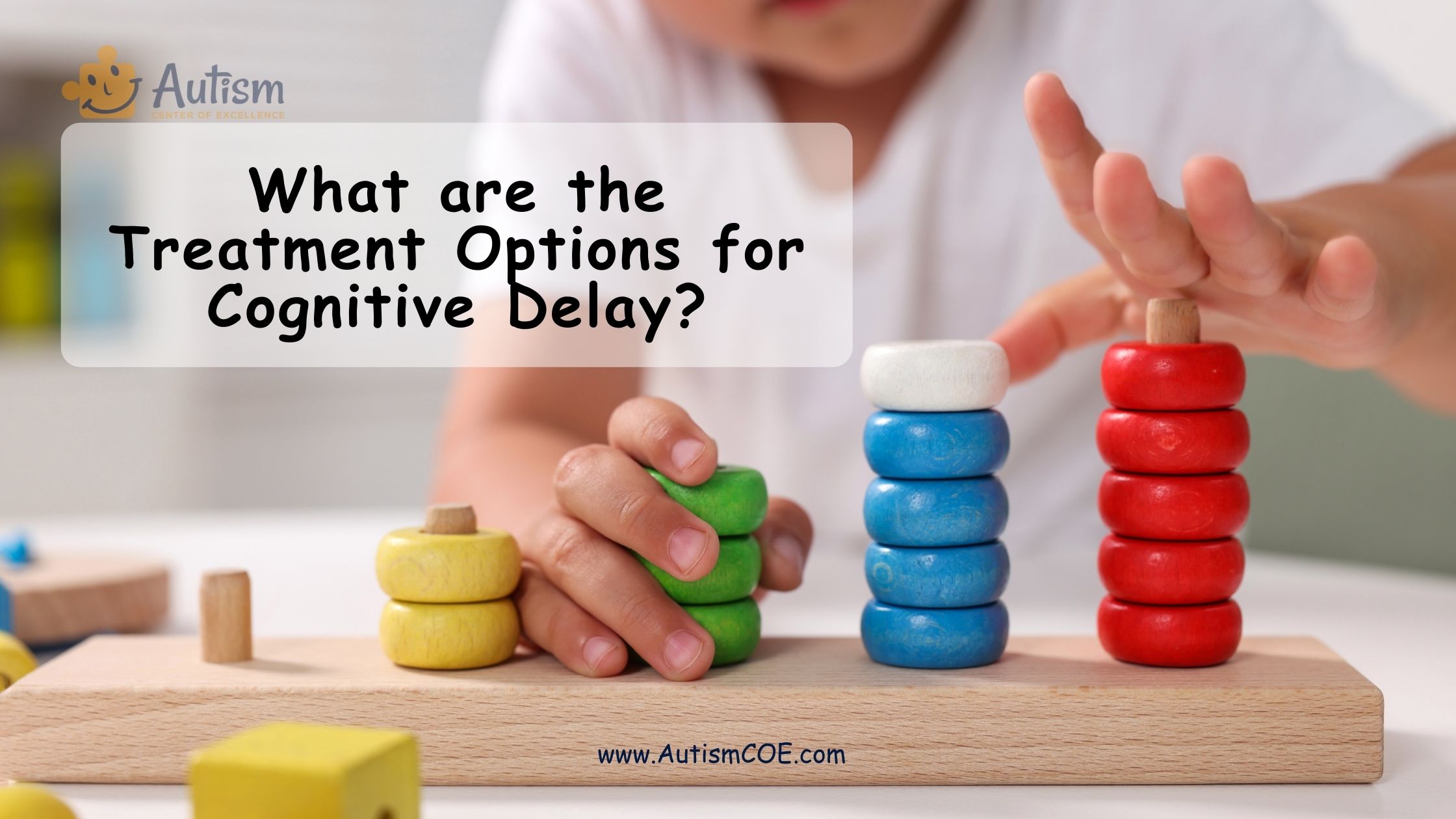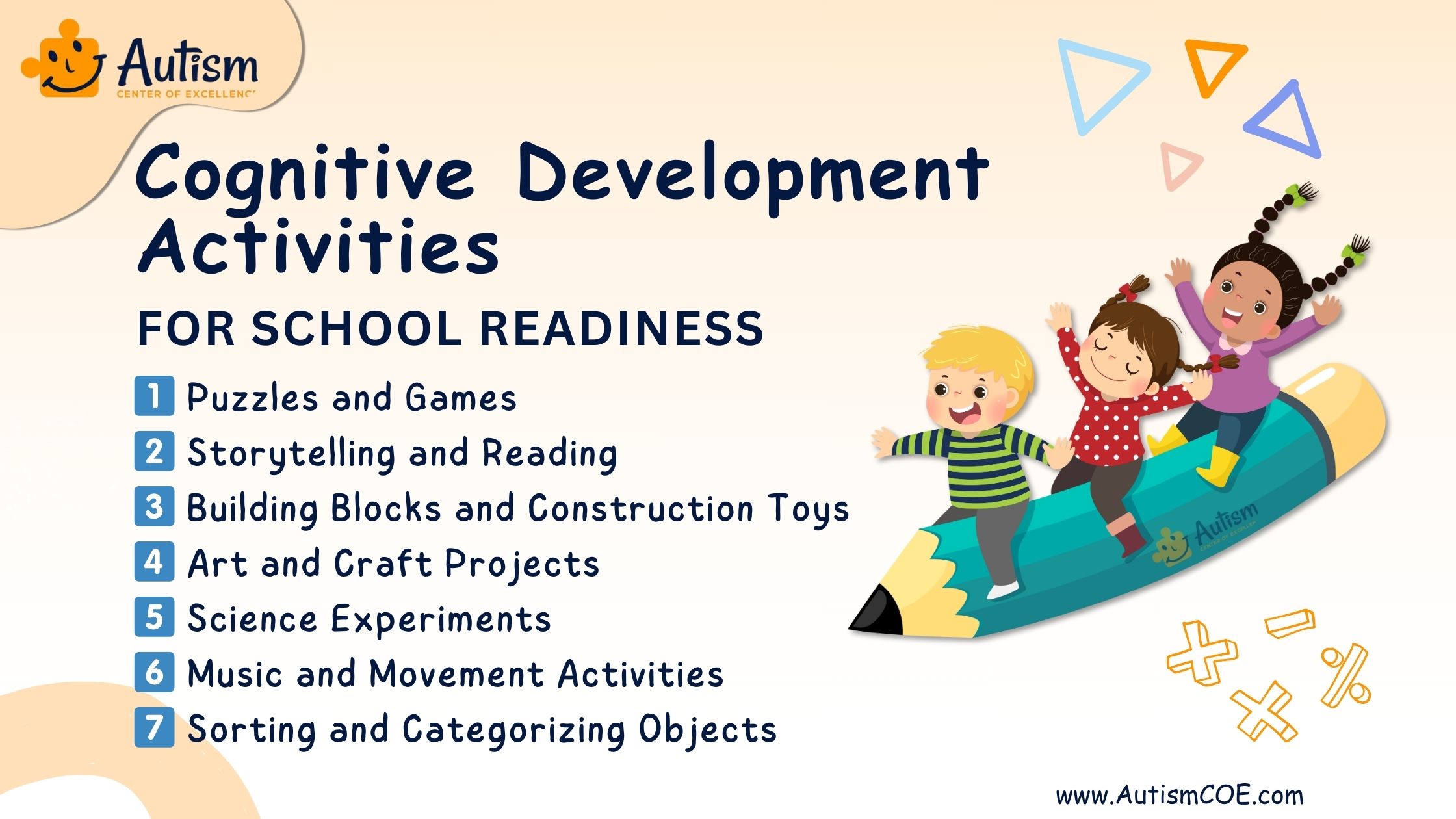Unit 35: Addressing Cognitive Developmental Delays in Children Before They Enter School

Every parent dream of seeing their child thrive and succeed, especially at the time when they are supposed to go to school. Cognitive developmental delays usually stand as an obstacle to living this dream. Recognizing such delays is very critical in as early stages as possible to ensure a smooth transition into the educational environment. This blog will help parents, educators, and caregivers take the necessary steps in the recognition, understanding, and management of cognitive developmental delays in young children.
This chapter will review what cognitive developmental delays are, how these influence or affect the School Readiness of Children, and some practical strategies to promote these skills in children before entering the classroom. We also answer some questions and provide an overview of this section to ensure a comprehensive approach is taken for the parents.
Understanding Cognitive Developmental Delays
Cognitive delays are a development characterized by slowness in mental skills. These are the thinking, problem-solving, and learning abilities that children master during typical development. These delays can vary widely among children and may affect their ability to grasp new concepts, follow instructions, or interact with peers.
Reasons for cognitive developmental delays are further multifarious, including genetic causes, problems during pregnancy, lack of stimulation, and toxic exposure.
Understanding these causes can help devise Effective Intervention Strategies tailored to each child’s needs.

The Role of Cognitive Skills in School Settings
Attention, memory, reasoning, and problem-solving are some of the cognitive skills that enable a Child to Be Competent at School. These form the very basis of learning and school performance. And when these basics are not formed properly, keeping abreast with others becomes difficult, hence frustration and loss of confidence.
Good cognitive skills in a school environment allow children to follow instructions, participate in class, and interact with other kids. Children whose cognitive development has been delayed may have trouble focusing on something, remembering certain pieces of information, or solving problems; thus, affecting their academic performance in general.
How to Identify Cognitive Developmental Delays in Children?
The early identification of delays in Cognitive Development can facilitate timely support and intervention. The close attention of parents and caregivers is very important to their children’s behaviors and developmental markers, regular check-ups at pediatricians can help in identifying any red flags.
Watch for some common signs such as trouble following simple directions, narrow vocabulary, difficulty remembering things or paying attention, and not being able to do things that other children of the same age can do. If any of these signs appear, a professional evaluation may be helpful.
Signs of Cognitive Delay in Children
Recognizing the signs of cognitive delay can be the first step toward getting the necessary help for your child. Common indicators include:
1️⃣ Language Delays
Limited vocabulary, difficulty in forming sentences, or inability to speak by the expected age.
2️⃣ Memory Problems
Inability to memorize names, places, or sequences.
3️⃣ Attention Deficits
Difficulty focusing on tasks or easily getting distracted.
4️⃣ Problem-Solving Difficulties
Struggling with puzzles, games, or basic problem-solving tasks.
5️⃣ Social Interaction Challenges
Difficulty mixing with peers and understanding social cues or making friends.
6️⃣ Emotional Regulation Issues
Frequent emotional outbursts, difficulty calming down, or trouble managing frustration.
7️⃣ Motor Skill Delays
Clumsy, unable to walk, balance, run, or difficulties with writing and use of utensils.
8️⃣ Limited Play Skills
Difficulty engaging in imaginative play or understanding the rules of games.
Enjoying Reading?
Join Our Weekly Newsletters!
Subscribe now to stay updated with our latest email updates.

Cognitive Delay Treatment Options
Once the presence of a cognitive developmental delay has been determined, a variety of treatments may be attempted. These can include, among others:
Early Intervention Programs
Individual programs that are tailor-made to focus on a special therapeutic provision in line with one’s particular needs. Early intervention programs are organized to maximize the early determination of difficulties so that appropriate provisions may be made to Support the Child in question.
Speech and Language Therapy
Valuable Improvements in Communication are possible, with the help of a qualified speech therapist, in children who present with delays in language. A set of activities to enrich vocabulary, articulation, and the structures of language can be employed to develop good communication with peers and caregivers.
Occupational Therapy
Occupational Therapy focuses on the fine motor skills, Sensory Integration, and daily living skills of a patient. Thus, with an emphasis on tasks related to daily life, occupational therapists give children the chance to acquire practical independence and self-confidence in their specific capabilities, such as learning to use cutlery or to dress themselves.
Behavioral Therapy
The therapeutic modality helps in learning the ways of controlling behaviors associated with problems while simultaneously fostering skills necessary for interaction within society. The purpose of this kind of therapy is to teach children how to interact in a social environment, express their feelings appropriately, and learn better ways to Manage Problematic Behavior.
Early and consistent intervention can bring quite a big difference in a child’s development, making them catch up with children his or her age and setting quite a good base for future learning.
School Readiness Programs for Cognitive Delay
School Readiness Programs aim at orienting the child for entering school and formal education. These normally include a series of educational activities, social interaction opportunities, and developmental assessments combined in the program.
In this regard, in the case of children with cognitive delays, special school readiness programs can assist them with the areas they need to work on. These particular programs may also collaborate with special educators, therapists, and counselors in creating an operational plan to support the child in developing skills that would enable him/her to start school proficiently.

School Readiness Activities to Address Cognitive Delays
Engaging them in cognitively developing activities is crucial in preparing the children for school. Such effective activities include:
1️⃣ Puzzles and Games
These activities encourage problem-solving and critical thinking by presenting challenges that require strategic thought and analysis. Playing with puzzles will help improve cognizance and develop memory retention.
2️⃣ Storytelling and Reading
Storytelling and reading can help improve one’s language while their imagination is opened up to new worlds and ideas. This will also be able to strengthen emotional bonds and improve understanding.
3️⃣ Building Blocks and Construction Toys
During creative playing with the building blocks and construction toys, the child develops spatial awareness and fine motor abilities. The handling of each component involved in constructing a building allows children to enhance their skills in visualization and planning crucial for mathematical manipulation.
4️⃣ Art and Craft Projects
Many arts and crafts activities enhance children’s creativity and self-expression by letting them communicate ideas and feelings through various modes. These activities will also develop a person’s fine motor skills and give one a sense of accomplishment.
5️⃣ Science Experiments
Simple science experiments nurture feelings of curiosity and inquiry into the world in which young children live. Through this active learning process, children begin to understand cause-and-effect relationships and develop critical thinking skills as they learn more about the way the world works.
6️⃣ Music and Movement Activities
These activities enhance auditory and coordination skills and also allow self-expression. Such activities can enhance rhythm, timing, and physical fitness, thus contributing to overall well-being.
7️⃣ Sorting and Categorizing Objects
Sorting and categorizing objects builds logical thinking and organization skills. Sorting and categorizing teaches the child to identify patterns and relationships, thus building a foundation for more complex analytical thought.
These activities should be integrated into daily routines in children’s lives to develop appropriate cognitive skills that help them perform successfully in school.
How to Help a Child with Cognitive Developmental Delay at Home?
Parents are very important in helping their children with cognitive development at home. A stimulating and warm environment can make a big difference. Here are some tips on how to help a child with cognitive developmental delays at home:
🏡 Encourage Play: Playing is the most significant part of early childhood. Encourage such activities that promote problem-solving, creativity, and social interaction.
🏡 Create a Routine: A daily routine offers a child structure and security.
🏡 Read Together: Reading different books allows language development to prosper. It is a building block for comprehension of material later on.
🏡 Provide Positive Reinforcement: Celebrate your child’s achievements, no matter how small. Positive reinforcement boosts confidence and motivation.
🏡 Stay Involved: Engage yourself actively in your child’s learning and development. Communicate with educators and professionals for your child to ensure all entities involved are working together.
Parents can only spur such a child to develop and progress with an enabling environment that is supportive and encouraging.
Frequently Asked Questions & Answer
What Happens If a Child Does Not Meet Developmental Milestones?
If a child fails to meet the developmental milestones, then it reflects an underlying cognitive developmental delay or other issues. Professional evaluation is necessary to find out the cause and suitable intervention in this respect.
Can Developmental Delay Be Cured?
While early intervention and therapy may significantly enhance some developmental outcomes, others might need ongoing support. The focus here is to assist the child in achieving their full potential and living a fulfilling life.
Which Cognitive Developmental Milestone is Characteristic of Preschoolers?
One of the critical features in cognitive development for preschoolers is following multiple-step directives, which is a critical feature in their later success in structured educational settings.
What are the Benefits of Early Cognitive Development Assessments?
The assessment of cognitive development in early years can find out the potential delays or problems so that early action can be taken as early as possible. Such assessments facilitate in devising an individualized support plan, catering to the unique needs of the child for better outcomes in the longer run.
Conclusion
Addressing cognitive developmental delays early on is crucial for ensuring children are well-prepared for school and beyond. Understanding the signs, seeking appropriate interventions, and engaging in supportive activities are critical ways in which parents, educators, and caregivers can influence a child’s development.
If you think that your child may have some cognitive developmental delays, please do not hesitate to consult a professional. Early diagnosis and Early Interventions open doorways to opportunities that better allow your child to realize their full potential.
For further information and individual advice, contact experts in the field who can offer specific guidance and insight. Together, we can create a nurturing environment that empowers every child to succeed.
Please Note: The content of this blog is for informational purposes only and should not be considered a substitute for professional medical advice, diagnosis, or treatment. Consult a qualified healthcare professional for personalized guidance tailored to your specific situation.

Bhavika Bhasin
Bhavika Bhasin is the Research and Marketing officer at AutismCOE. She works with children and adults with ASD. Her clinical research includes evaluating various available autism screening and diagnosis methods and their efficacy. She is currently developing a novel screening exam that is indicated to be more accurate than the existing available exams. She is also writes articles papers for various publications.

